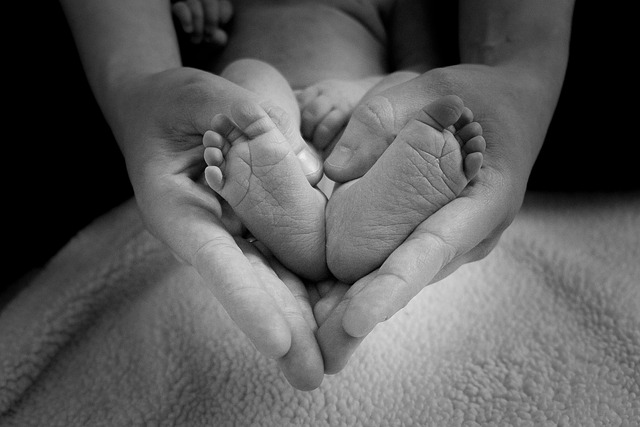BEYOND WORDS: THE UNIQUE BOND BETWEEN MOTHER AND CHILD

The close connection between parents and children provides the baby with the first intimacy model and cultivates a sense of security and positive self-esteem. The unique bond between mother and child makes their response to infant signals timely, this prompt response can affect their children’s social and cognitive development.
Bonding is a strong attachment that develops between parents and their babies. It makes parents want to shower their baby with love and affection and protect and care for their little one. The connection between mother and child makes them notice the baby’s extensive crying.
Who are babies easily attached to?
Babies are usually attached to the person who gave birth to them. Starting from the 31st week in the womb, the baby can recognize and soothe through your voice. When they are born, newborns can even recognize some sounds of their native language.
If your baby bonds with other important people, they will not be less attached to you. Building bonds can help your baby learn to get close to people.
WAYS BABIES BOND
When you are a new parent, it may take a while to understand your newborn and all the ways you can interact:
As babies react to skin contact, touch becomes an early language. It is soothing for both you and your baby while promoting the healthy growth and development of your baby.
- Eye-to-eye contact provides meaningful close communication.
- Babies can follow moving objects with their eyes.
- Your baby tries to imitate your facial expressions and gestures very early.
- Babies prefer human voices and enjoy speaking out in their first communication efforts. Babies usually like to listen to your conversations and your description of their activities and environment.

What is this unique bond between mother and child?
The unique bond between a mother and her biological child usually begins to develop during pregnancy. A pregnant woman adapts to her lifestyle to meet the needs of a developing baby. Around 18 to 25 weeks, the mother begins to feel the fetus moving. Similar to seeing her child for the first time in an ultrasound scan, this experience usually makes the mother feel more attached to her child.
The developing fetus has a certain understanding of the mother’s heartbeat and sound and can respond to touch or movement. By the seventh month of pregnancy, two-thirds of women reported a strong matrilineal relationship with their unborn child.
The two senses most involved in bonding and attachment are hearing and smell. A study found that babies in the womb are recognized by their mother’s voice and become excited. Other studies have found that babies recognize their mother’s native language in the womb and show a preference for other languages. Other studies have found that babies can remember words heard in the womb.
Some mothers who do not want to get pregnant may not have a close relationship with their children. They are more likely to suffer from postpartum depression or other mental health problems and are less likely to breastfeed.
Why is bonding important?
Most babies are ready to bond immediately. On the other hand, parents may have complicated feelings. Some people feel a strong attachment in the first few minutes or days after the baby is born. For others, it may take longer.
But bonding is a process, not something that happens within a few minutes or can only happen within a certain time after birth. For many parents, the connection is built outside of daily care. You may not even know it happened until you see your baby’s first smile and suddenly realize that you are full of love and joy.
According to the World Health Organization, responsive parenting “facilitates the language, cognitive, and psychosocial development of children throughout their life cycle.”There is evidence that a mother who responds appropriately to the baby’s needs enhances his brain development. It is believed that children’s temper and their ability to self-regulate may also be positively affected.
Bonding with another parent
Dads and other partners often desire closer contact with their children, but bonding can happen on different schedules. But they should realize very early that the union with the child is not a matter of becoming another mother. In many cases, dads share special events with their babies. When they can support and encourage each other, both parents will benefit greatly.

Early contact activities include:
- Participate in labor and delivery
- Breastfeeding (breast or bottle); sometimes dad will form a special connection with the baby when dealing with breastfeeding and changing diapers in the middle of the night
- Read or sing to your baby
- Bathe the baby
- Mirror the baby’s movements
- Imitate baby’s cooing and other sounds
What affects bonding?
Bonding may be delayed for various reasons. Prospective parents may form a picture of their baby with certain physical and emotional characteristics. When you meet your child at birth or after adoption, reality may make you adjust your psychological condition. Because the baby’s face is the main tool of communication, it plays a vital role in bonding and attachment.
Hormones can also significantly affect adhesion. Although nursing or feeding a baby in the first few hours of life can help bonding, it can also cause the outflow of many different hormones in the mother’s body. Sometimes, if the mother’s hormones are raging or postpartum depression, it will be difficult for the mother to contact the baby. If the mother is exhausted and feels pain after a long and difficult childbirth, then bonding will also be delayed.
In a Peculiar Situation
Bonding is a complex, personal experience that takes time. There is no magic formula, nor can it be forced. A baby whose basic needs are met will not be affected if the relationship is not strong at first. As new parents become more comfortable with their children and their daily lives become more predictable, they will feel more confident in all the amazing aspects of raising their children.
But what happens when things don’t go so well? What if the baby and their mother are separated at birth, such as if the baby is premature or sick and needs special care? Or those adopted babies may not be able to meet their adoptive mothers for a long time after birth? Sometimes a new mother feels depressed or incapacitated after giving birth and does not feel like interacting with her newborn.
Fortunately, human beings are not completely dependent on those early moments, and there are many opportunities to combine properly in the first year of life. We know that mothers who adopt infants and even older children can form normal attachment relationships.









